
Navigating Hope: Liver Transplant at Medanta - The Medicity
02 Dec, 2023
 Healthtrip
HealthtripIntroduction
- Medanta - The Medicity, a beacon of healthcare excellence, has been a steadfast partner in the journey towards comprehensive well-being since its establishment in 2009. One of its standout offerings is liver transplantation, a complex yet life-altering procedure that has been transforming lives under the skilled hands of the institute's renowned medical professionals.
Decoding Liver Disease: Recognizing Symptoms
- Liver diseases often operate in stealth mode, exhibiting symptoms that can be subtle yet indicative of underlying issues. Timely identification of these signs is crucial for early intervention and effective treatment. Here, we delve into the diverse array of symptoms that might signal liver-related concerns:
1. Fatigue
Persistent fatigue, often unexplained by changes in activity or sleep patterns, can be an early indicator of liver dysfunction. The liver plays a vital role in energy metabolism, and any disruption in its function can lead to feelings of tiredness.
2. Jaundice
Jaundice, characterized by yellowing of the skin and eyes, is a classic sign of liver problems. It occurs when there is a buildup of bilirubin, a yellow pigment, in the blood. Liver diseases can impede the organ's ability to process bilirubin, leading to its accumulation.
Most popular procedures in India
3. Abdominal Pain and Swelling
Discomfort or pain in the upper right side of the abdomen may signal liver issues. Additionally, liver diseases can cause abdominal swelling or distension due to fluid retention, a condition known as ascites.
4. Unexplained Weight Loss
Unintended weight loss, especially when not accompanied by changes in diet or physical activity, can be a red flag for liver problems. The liver's role in nutrient processing can be compromised in certain conditions, leading to weight loss.
Wellness Treatments
Give yourself the time to relax
Lowest Prices Guaranteed!

Lowest Prices Guaranteed!
5. Changes in Stool and Urine
Alterations in stool color (pale or clay-colored) and dark urine may indicate liver dysfunction. The liver produces bile, a digestive fluid that gives stool its characteristic brown color. Issues in bile production can affect stool color, while dark urine may suggest the presence of bilirubin.
6. Loss of Appetite
Liver diseases can impact appetite and lead to a noticeable loss of interest in food. This symptom can contribute to unintended weight loss and nutritional deficiencies.
7. Itchy Skin
Pruritus, or itchy skin, is a common symptom of liver diseases. The accumulation of bile salts beneath the skin can trigger itching, making it an important signal for further investigation.
8. Easy Bruising and Bleeding
The liver produces proteins necessary for blood clotting. Impaired liver function can result in a deficiency of these proteins, leading to easy bruising and prolonged bleeding even with minor injuries.
Diagnosing Liver Disorders
- Accurate and prompt diagnosis is the cornerstone of effective medical intervention, especially when it comes to liver disorders. The intricate nature of liver function requires a thorough examination and the use of various diagnostic tools. Here's a closer look at the diagnostic journey for liver diseases:
1. Medical History and Physical Examination
The diagnostic process typically begins with a comprehensive medical history review and a physical examination. Healthcare professionals inquire about symptoms, lifestyle factors, and any family history of liver diseases. A physical examination may reveal signs such as jaundice, abdominal swelling, or tenderness.
2. Blood Tests: Liver Function Tests
Blood tests, specifically liver function tests, are instrumental in assessing the health of the liver. These tests measure levels of enzymes, proteins, and other substances indicative of liver function. Abnormalities in these markers can provide valuable insights into the presence and severity of liver disorders.
3. Imaging Studies: Ultrasound, CT Scan, or MRI
Imaging studies play a crucial role in visualizing the structure of the liver and identifying abnormalities. Ultrasound, CT scans, and MRI scans are commonly employed to assess the liver's size, shape, and detect the presence of masses, cysts, or other anomalies.
4. Liver Biopsy
In some cases, a liver biopsy may be recommended to obtain a small tissue sample for microscopic examination. This procedure helps in confirming the diagnosis, determining the extent of liver damage, and identifying the underlying cause of the liver disorder.
5. Fibro Scan or Transient Elastography
Fibro Scan, or transient elastography, is a non-invasive method to assess liver fibrosis or scarring. This technique measures the stiffness of liver tissue, providing information about the degree of liver damage without the need for a traditional biopsy.
6. Endoscopy: Upper GI Endoscopy or ERCP
For certain liver conditions, endoscopic procedures may be required. Upper gastrointestinal (GI) endoscopy can help diagnose varices or bleeding in the esophagus, while endoscopic retrograde cholangiopancreatography (ERCP) is used to assess the bile ducts.
7. Genetic Testing
In cases of suspected genetic liver diseases, genetic testing may be recommended to identify specific gene mutations or variations. This information is crucial for understanding the hereditary aspects of certain liver conditions.
A Step-by-Step Guide to Liver Transplantation at Medanta - The Medicity
- Embarking on the path of liver transplantation is a significant decision, and at Medanta - The Medicity, the process is designed with meticulous care to ensure the best possible outcomes. Here is a comprehensive step-by-step guide to understanding the liver transplant procedure at this esteemed healthcare institution:
1. Patient Evaluation and Assessment
The journey begins with a thorough evaluation of the patient's medical history and current health status. A multidisciplinary team, comprising hepatologists, transplant surgeons, and other specialists, collaborates to assess the patient's eligibility for a liver transplant. This involves a detailed examination of the patient's liver function, overall health, and any underlying conditions.
2. Inclusion in the Transplant Program
Upon determination of eligibility, the patient is included in the liver transplant program at Medanta. The medical team discusses the procedure, potential risks, and benefits with the patient and their family, ensuring informed consent.
3. Listing for Transplant
Once accepted into the program, the patient is officially listed for a liver transplant. The allocation of donor organs is governed by a transparent and fair system, prioritizing urgency and compatibility.
4. Waitlisting and Patient Education
Patients on the transplant list undergo a waiting period. During this time, Medanta provides extensive education and support to both the patient and their family. This includes information about the transplantation process, post-operative care, and lifestyle modifications.
5. Identification of a Suitable Donor
The search for a suitable donor begins. This can involve deceased donors or living donors, typically family members or close friends. Living donor liver transplantation is a distinctive feature at Medanta, offering an alternative for patients in need of a timely transplant.
6. Pre-transplant Preparations
As the transplant date approaches, the medical team conducts a series of pre-transplant preparations, including comprehensive medical tests, imaging studies, and consultations. This ensures that the patient is in optimal condition for the transplant procedure.
7. Surgery Day: The Transplant Procedure
a. Anesthesia and Incision
On the day of the surgery, the patient is administered anesthesia to ensure a pain-free experience. The transplant surgeon makes an incision in the abdomen to access the liver.
b. Removal of Diseased Liver
The diseased liver is carefully removed, making way for the transplantation of the healthy donor liver.
c. Implantation of Donor Liver
The donor liver is meticulously implanted, and blood vessels and bile ducts are connected to ensure proper blood flow and drainage.
d. Monitoring and Closure
The surgical team monitors the patient closely during the procedure. Once the transplantation is successful, the incision is closed, and the patient is moved to the recovery area.
8. Post-operative Care
After the transplant, the patient is closely monitored in the intensive care unit (ICU) for a period. Post-operative care involves managing pain, preventing infections, and ensuring the proper functioning of the transplanted liver.
9. Rehabilitation and Follow-up
As the patient recovers, a comprehensive rehabilitation plan is implemented, including physical therapy and dietary guidance. Regular follow-up appointments are scheduled to monitor the patient's progress and address any concerns.
10. Life After Transplant: Ongoing Support
Medanta - The Medicity provides continuous support to patients post-transplant, including medications, lifestyle guidance, and psychological support. Patients are encouraged to embrace a healthy lifestyle to ensure the longevity and well-being of the transplanted liver.
Treatment plan
Inclusions: Comprehensive Care for Holistic Healing
Medanta's liver transplant program is a testament to comprehensive care, encompassing:
1. Pre-transplant Evaluations
Before the transplant journey begins, patients undergo a series of thorough evaluations. These assessments provide crucial insights into the patient's overall health, the severity of liver disease, and any potential complications. This foundational step ensures that the medical team has a nuanced understanding of each patient's unique condition.
2. The Surgical Procedure Itself
At the heart of the program lies the meticulous execution of the liver transplant surgery. Medanta's skilled transplant surgeons navigate the complexities of the procedure with precision, ensuring the successful transplantation of the donor liver. This phase is a culmination of expertise, cutting-edge technology, and a commitment to achieving optimal outcomes.
3. Post-operative Care
The care continuum extends well beyond the surgery. Medanta prioritizes post-operative care to facilitate a smooth recovery. From monitoring vital signs to managing pain and addressing any immediate concerns, the medical team remains dedicated to supporting patients during this critical phase. Post-operative care is an integral part of the comprehensive approach, fostering the long-term well-being of each individual.
Exclusions: Transparent Communication for Informed Choices
In the spirit of transparency, Medanta ensures clear communication about exclusions:
1. Clear Communication on What's Not Covered
Understanding the financial aspects of healthcare is paramount for patients. Medanta's commitment to transparency means explicitly outlining what is not covered in the liver transplant treatment package. This transparency empowers patients to make informed decisions, eliminating any ambiguity and promoting a clear understanding of financial responsibilities.
Duration:
Medanta's approach to time in liver transplant cases is both swift and deliberate:
1. Swift Processes for Timely Intervention
Recognizing the urgency often associated with liver transplants, Medanta has streamlined its processes to ensure swift interventions. From initial evaluations to listing, donor matching, and surgery scheduling, each step is optimized for efficiency. This agility is crucial in addressing the time-sensitive nature of liver transplantation.
2. Deliberate Precision for Successful Outcomes
While speed is essential, Medanta does not compromise on precision. The medical team exercises a deliberate approach throughout the process, emphasizing the importance of accuracy in diagnostics, surgical procedures, and post-operative care. This balance ensures not only a timely intervention but also a successful and sustainable outcome.
Cost Benefits: Value in Healthcare for a Renewed Lease on Life
Medanta - The Medicity delivers value in healthcare by:
1. Quality Care
Every aspect of Medanta's liver transplant program is designed to deliver quality care. From state-of-the-art facilities to a team of experienced professionals, the emphasis is on providing healthcare services of the highest standards.
2. World-class Expertise
The institute prides itself on housing world-class expertise. The medical team, comprising seasoned transplant surgeons, hepatologists, and support staff, brings a wealth of knowledge to each case. This collective expertise ensures that patients receive care at the forefront of medical advancements.
3. Renewed Lease on Life
Ultimately, the cost of a liver transplant at Medanta is an investment in a renewed lease on life. The value extends beyond monetary considerations, encompassing the priceless outcome of restored health, vitality, and the opportunity for a fulfilling future.
Understanding the Costs: Liver Transplant at Medanta Hospital, Gurgaon
- The cost of a liver transplant at Medanta Hospital, Gurgaon, India is subject to various factors, and as a general estimate, it falls within the range of INR 20 to 30 lakhs. This estimate covers a range of expenses related to the transplant procedure and subsequent care. Here is a breakdown of the approximate costs associated with a liver transplant at Medanta Hospital:
1. Donor Evaluation: INR 1-2 lakhs
Before the transplant, a thorough evaluation of the donor is conducted to ensure compatibility and overall health. This phase incurs costs ranging from INR 1 to 2 lakhs.
2. Hospital Stay: INR 5-10 lakhs
The duration of hospitalization is a significant factor in the overall cost. The estimate for hospital stay expenses falls between INR 5 to 10 lakhs, encompassing pre-operative preparations, the transplant procedure, and post-operative care.
3. Surgery: INR 10-15 lakhs
The surgical procedure itself incurs substantial costs, covering the expertise of the medical team, the use of advanced medical equipment, and other surgical expenses. This cost is estimated to be between INR 10 to 15 lakhs.
4. Medications: INR 2-5 lakhs
Post-transplant medications are crucial for preventing rejection and supporting the recovery process. The estimated cost for medications falls within the range of INR 2 to 5 lakhs.
Additional Costs to Consider:
Beyond the direct medical expenses, there are additional costs that patients may need to consider:
1. Travel and Accommodation:
If you are traveling from out of town, you will need to cover travel and accommodation expenses for yourself and a caregiver.
2. Lost Wages:
If you are unable to work during the recovery period, you may need to account for lost wages as part of the overall cost.
3. Out-of-Pocket Expenses:
Prescription medications, copayments, and other out-of-pocket expenses should also be factored into your financial planning.
Financial Assistance Options:
- To alleviate the financial burden associated with a liver transplant, several assistance options are available:
1. Government Assistance:
Explore government programs such as Medicare, Medicaid, or other assistance schemes that may provide financial support for the transplant.
2. Private Insurance:
Check with your private health insurance provider to determine if your policy covers the cost of a liver transplant.
3. Organ Donation Organizations:
Organ donation organizations may offer financial assistance in the form of grants, loans, or other support mechanisms.
Continuing the Journey: Life After Liver Transplant at Medanta - The Medicity
- Receiving a liver transplant at Medanta - The Medicity marks the beginning of a transformative journey toward renewed health and vitality. The comprehensive care provided by the medical team extends beyond the surgical procedure, focusing on post-transplant life and long-term well-being.
1. Empowering Lives Beyond the Transplant
The success of a liver transplant is not solely measured by the completion of the surgical procedure. Medanta places a strong emphasis on empowering patients to lead fulfilling lives post-transplant. This involves comprehensive rehabilitation, lifestyle adjustments, and ongoing support to ensure a seamless transition into a healthier future.
2. Rehabilitation and Support Services
Recognizing the physical and emotional challenges post-transplant, Medanta offers a range of rehabilitation and support services. These may include physical therapy to enhance mobility, dietary counseling for optimal nutrition, and psychological support to address the emotional aspects of recovery. The goal is to support patients in reclaiming their lives with resilience and confidence.
3. Patient-Centric Approach
Medanta's commitment to a patient-centric approach doesn't diminish after the transplant. Instead, it becomes more pronounced in the post-transplant phase. The medical team continues to tailor care to the individual needs of each patient, recognizing that the journey to wellness is unique for every individual.
4. Technological Advancements in Post-Transplant Care
Staying at the forefront of medical advancements, Medanta integrates technology into post-transplant care. This may include telehealth services for remote monitoring, digital platforms for educational resources, and innovative tools to track and manage post-transplant health. The integration of technology enhances the efficiency and effectiveness of ongoing care.
5. Collaborative Decision-Making in Follow-Up Care
Just as in the pre-transplant phase, Medanta believes in collaborative decision-making for follow-up care. Regular follow-up appointments involve discussions with the medical team, addressing any concerns, adjusting medications, and planning for the future. The patient remains an active participant in their ongoing care.
Embracing Hope: What Sets Medanta Apart in Post-Transplant Care
1. Global Recognition for Excellence
Medanta's post-transplant care is built on a foundation of excellence that has earned global recognition. Patients from around the world choose Medanta for its commitment to quality healthcare and its track record in delivering successful post-transplant outcomes.
2. Research and Innovation in Post-Transplant Protocols
The institute doesn't rest on its laurels but continues to drive research and innovation in post-transplant care. New protocols, treatment modalities, and support services are continuously developed to enhance the quality of life for transplant recipients.
3. Ethical and Transparent Practices in Long-Term Care
Medanta upholds the highest ethical standards in its long-term care practices. Transparency remains a cornerstone, ensuring that patients are informed about their ongoing care, potential challenges, and the institute's commitment to their sustained well-being.
Patient Testimonials:
- Discovering the impact of liver transplantation at Medanta - The Medicity goes beyond medical statistics; it is embedded in the personal narratives of individuals whose lives have been transformed. Here are heartfelt testimonials from patients who have embarked on the journey of triumph and renewal:
1. "A Second Chance at Life"
"Medanta didn't just give me a new liver; they gave me a second chance at life. The entire medical team, from doctors to nurses, became my pillars of support. The post-transplant care was meticulous, and today, I'm not just surviving; I'm thriving."
2. "Compassionate Care That Counts"
"Choosing Medanta for my liver transplant was the best decision I made. The care I received went beyond medical expertise; it was compassionate and personalized. The rehabilitation services post-transplant were instrumental in my recovery."
3. "Empowered to Embrace Wellness"
"The team at Medanta didn't just focus on the surgery; they empowered me to embrace wellness. From dietary counseling to psychological support, every aspect of post-transplant care was geared toward helping me reclaim a healthy and fulfilling life."
Conclusion:
- In conclusion, life after a liver transplant at Medanta - The Medicity is characterized by a lifelong commitment to wellness. The institute's unwavering dedication to patient-centered care, technological innovation, and ongoing research sets it apart as a beacon of hope for individuals who have undergone this transformative procedure. The journey continues, not just in recovery but in embracing a future filled with health, resilience, and the promise of a new beginning.
Related Blogs
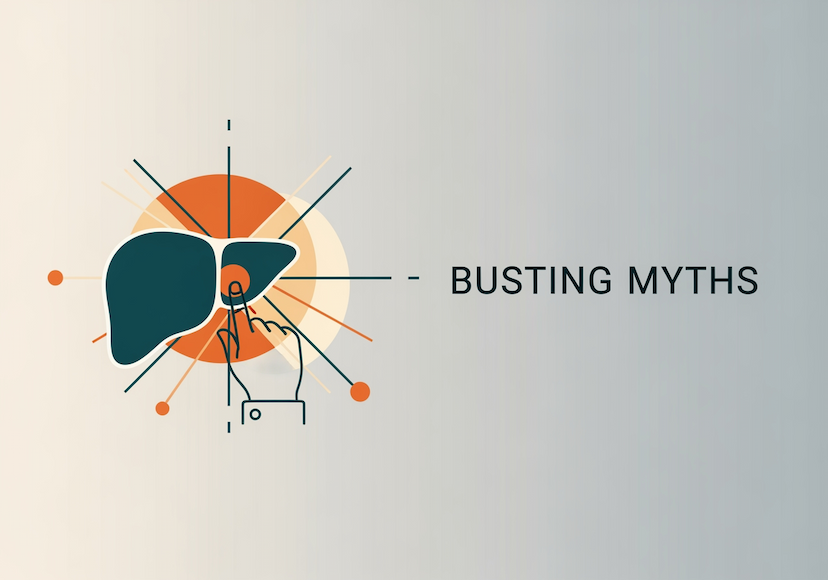
Common Myths About Liver Transplant Doctors Bust Them
Explore evaluations, innovations, hospital comparisons, and global success insights for
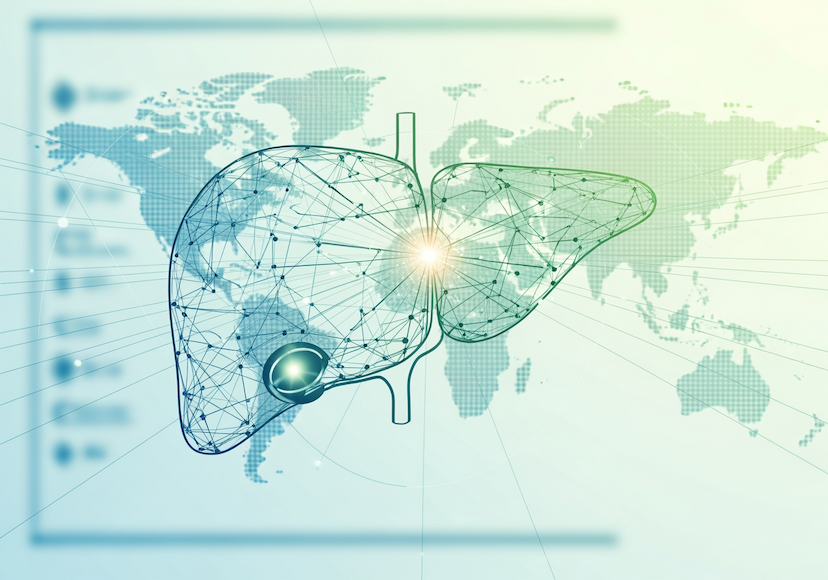
How Healthtrip Coordinates Cross-Border Medical Records for Liver Transplant
Explore evaluations, innovations, hospital comparisons, and global success insights for
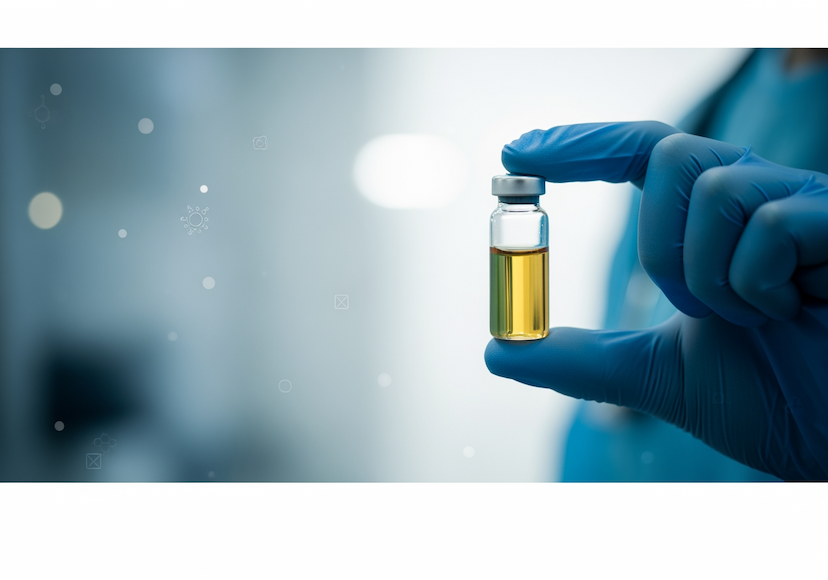
Top Pre-Surgery Tests Required for Liver Transplant
Explore evaluations, innovations, hospital comparisons, and global success insights for
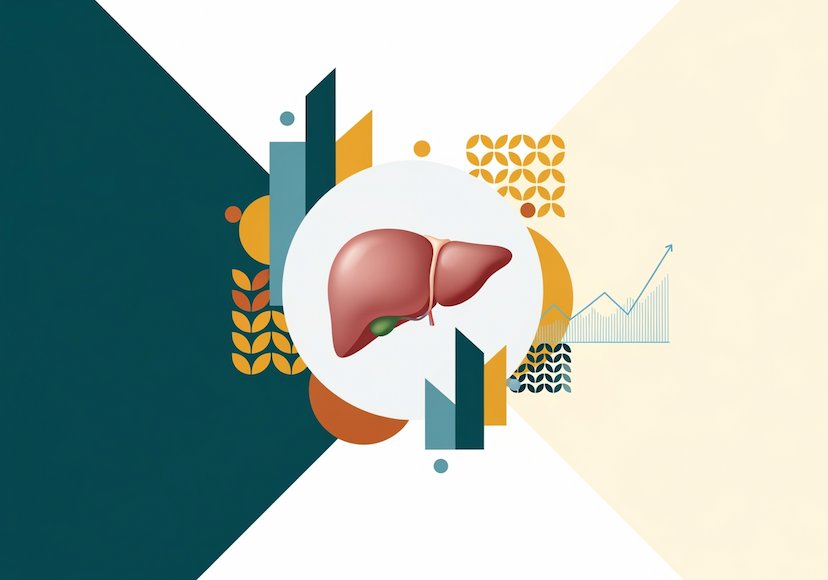
Why India Leads in Affordable Liver Transplant Analysis
Explore evaluations, innovations, hospital comparisons, and global success insights for

Patient Satisfaction Scores for Liver Transplant at Healthtrip Partner Hospitals
Explore evaluations, innovations, hospital comparisons, and global success insights for
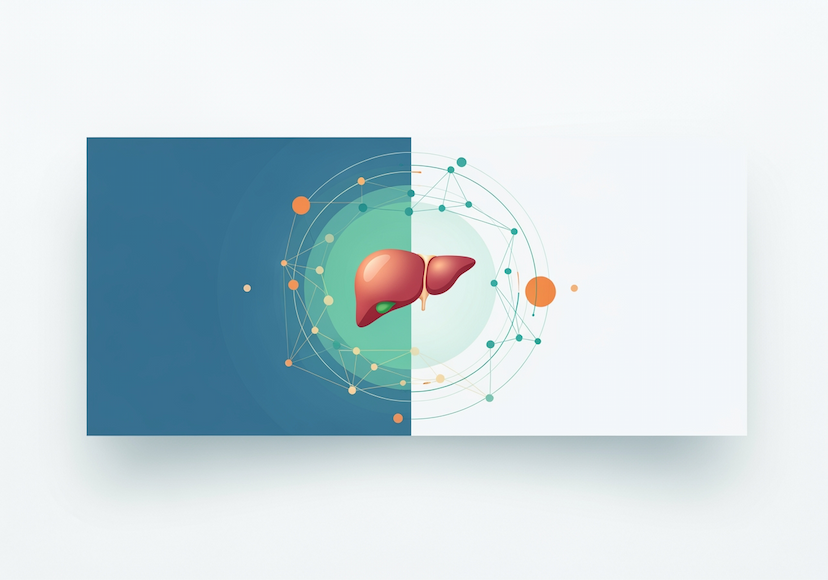
How to Choose the Right Hospital for Liver Transplant Using Healthtrip's Criteria
Explore evaluations, innovations, hospital comparisons, and global success insights for










